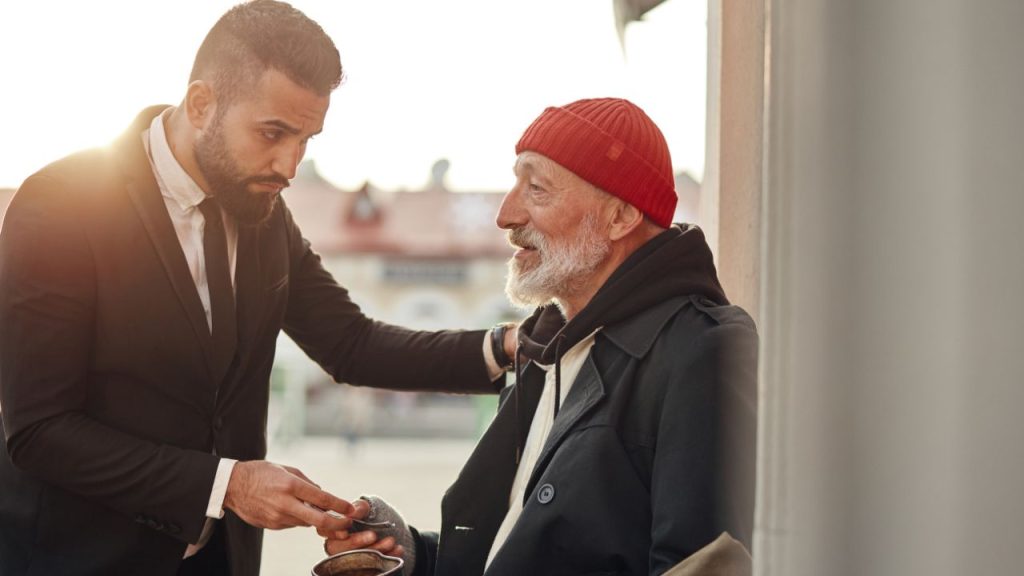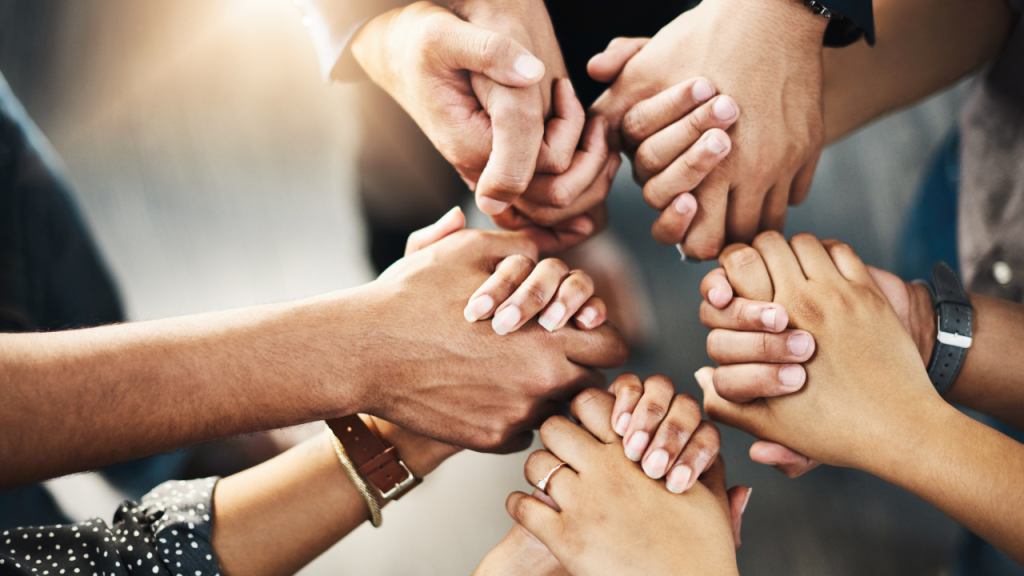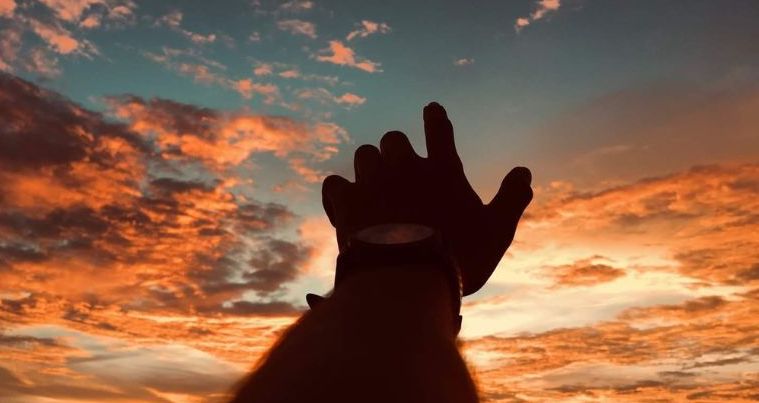
In this post, we are exploring the gift of service, which we all have, but more or less. And what do I mean by that?
The more we embark on our journey towards authenticity, the more we naturally feel like being of service to others. It is an unconditional giving and helping without the need to get anything in return because we exist more and more in our heart and less in our survival brain and our fears.
Authenticity leads to a desire to be of service, BUT with discernment
When we are authentic, when we are aligned with who we truly are, our spirit, we are not only inspired, but we also wants to be of service.
People who do not want to be of service and whose actions are just for self-gratification exist more in their fears and egos and less in their hearts. It’s not a very joyful place, and it’s also a state where we always need more to feel fulfilled.
Some cultures really preach the message of being self-focused, and even though my message is all about getting to know ourselves, living authentically, and filling up our own cup first, I believe the self-focused way of living is a slippery slope leading to a less fulfilled life.

However, having the gift of service requires developing a level of discernment because offering our services to everyone is not very fruitful; we will explore this further in this post.
If you have a scientific interest in this subject, you can find many reports on the World Happiness Report, and this one can be a good starting point: Doing Good and Feeling Good: Relationships Between Altruism and Well-being for Altruists, Beneficiaries, and Observers.

There are 1,000,000 ways of solving problems in the world and being of service
As already mentioned, when we are aligned with who we truly are, we want to be of service and contribute to a better world in some way, but this can take very different forms.
It can simply be the way we move through our day, spreading joy or making people feel seen; being a farmer providing food on people’s plates, raising children, or having a tech company that helps people connect, improve health, or provide shelter—or any other altruistic mission. There really are millions of ways to solve problems in the world and to be of service.
Often, we humans carry many fears, a great deal of darkness, and trauma in our lives that hold back who we truly are. It’s sad that so many choose, consciously or unconsciously, to remain in this state. But that’s how it is, and we have all been gifted with free will.

It doesn’t have to be that way, though. We can always change if that desire comes from within. Living more harmoniously and releasing fear not only positively affects how we feel, but it also impacts our physical health: DNA (epigenetics), gut health, and mental health. Don’t forget about the people around you!
When experiencing depressive thoughts and anxiety, we become trapped in a self-focused reality; this is not the same as being egotistical; it’s an unconscious survival strategy.
Many people are actually unhappy because they focus too much on themselves. Long-term happiness comes as a result of a meaningful life. The ”me me me” mindset and approach is a trap. We’re not meant to live like that. We are all connected, so we need to connect with our gifts as well.

However, we can’t help others if we don’t fill up our own cup
Disclaimer: Being of service and shifting our focus from self to others does not mean we should neglect our own care.
We should care for ourselves. If we don’t recharge, if we don’t give ourselves what we need and refill our own cup of energy, we can’t show up for others either. We are going to burn out. We’re going to feel unfulfilled. This is also the case when we give, help, and pour our gifts and energy into the wrong people and organizations – we feel drained!
Why we need to look within and discern why we do the things we do
I believe that we all need to have a period in our lives when we are a bit self-focused, and this is when we enter a crisis, or some might call it an awakening. It’s an event where we come to understand that what we are doing isn’t working and that what I’ve been taught and programmed is untrue for us.
Things in our lives need to change, and whether this is an awakening or a crisis doesn’t matter. It’s the same core issue. We recognize that change is necessary, and we need to shift our focus and what we cultivate.

A transformative event like this can happen several times throughout our lives: A 30-year-old crisis, a 50-year-old crisis. Call it whatever you want, but it is the realization that, man, this isn’t working because we have been running away from ourselves for too long.. And honestly, sometimes it’s really good to hit rock bottom because that gives us a very strong ’why’. That is exactly what I did.
To achieve change that is challenging for us, we need a strong ’why’ to prevent us from falling back into our old habits when we encounter temptation.
Hitting rock bottom can give you the right amount of fuel you need to actually change your life, because change is hard, and you need a strong ’why’.
If we just get a little sick, a little depressed, or a little burned out, we can take some actions and feel a little better. But then, we just continued with the same strategy leading up to the same crash or even worse. And we just continue to cope with this life that we don’t really actually like. That is not good for us. Those are not good for other people.
So, if we actually hit rock bottom, the old self needs to die. I don’t mean literally die. I mean that the old consciousness, the old way of thinking, believing, and feeling, our perception of the world, needs to be dissolved and left behind. And we need to change our consciousness. We need to become someone new. We need to change within to have a different result.

Some solitude and self-reflection are necessary to learn how to discern and cultivate the right things in your life
For inner transformation to occur, we need to be somewhat self-focused, as we must look within. We have to understand what the errors are:
- Why do we follow other people’s agendas?
- Why do we overlook our need to feel safe?
- Why don’t we say no when we actually mean no?
- Why don’t we truly live the lives we want?
We have to harness our discernment and use it internally and externally, and truly understand the intentions behind our actions, and learn and discern when they come from fear, when they come from guilt, when they come from care, from love. We also need to harness our discernment in our outer environment to know where to pour our gifts, but I believe it’s necessary to look within first.
Giving to get something in return is a trap
We should never do something for another person to get something in return. That is not love, it’s a transactional relationship and actually manipulation.

But what happens is that when we give for the right reasons, the universal laws automatically give back to us. That’s pretty cool, and that’s when we feel blessed. There’s a natural order of giving and receiving, being of service, and feeling blessed. It’s beautiful. But that doesn’t happen when we give and serve, due to feelings of unworthiness, guilt, or shame, or because we feel obligated to.
Our actions need to arise from our hearts and be driven by a desire to act because we want to and enjoy it.
We need to be a bit more self-focused and aware to recognize this within ourselves and to unlearn the patterns and behaviors driven by fear. We need to reconnect with our feelings and sit with those uncomfortable emotions for a while. We must understand them. Why do these uncomfortable feelings exist?
Numbing uncomfortable feelings blocks actually knowing yourself & become resilient
If we numb ourselves every time we feel uncomfortable feelings, we never understand what our feelings are actually trying to tell us.

However, there are also phases in our personal and spiritual journey when we simply need to accept our emotions and feelings without judging them or constantly trying to analyze their origins. Just sit with them, accept them, and truly feel them. Allow yourself to process by simply acknowledging and witnessing them until you’ve felt them enough for transformation to occur.
Emotions do transform when we stop pushing them down or escaping from them.
However, I believe that investigating why we feel certain emotions is crucial as an initial step to identify our destructive programming and thinking patterns – if we haven’t undergone a similar phase before. I hope that made sense.
If we sit with the uncomfortable feeling, we will realize that it doesn’t last forever. They come and go, and there’s a reason behind the feelings.
Real self-love is accepting all parts of yourself, not getting a manicure or a new car
Self-love is wonderful, but some people equate self-love with buying a new car or getting a pedicure. That’s not really the core of self-love. When we have this idea of self-love, I believe it’s better to use the term self-acceptance.

The essence of self-love is the ability to accept and love ourselves unconditionally, including the parts of ourselves that we have been taught and programmed to believe others dislike about us.
Why did these thoughts and programs manifest themselves in us then?
Looking back, it’s likely that we expressed something, said something, or did something and felt unsafe as a result of the feedback we received from our surroundings. We felt punished, shamed, or criticized in some way. So our survival brain stepped in and created a mental program saying: ”Don’t do or say that thing again,” and stored it in our subconscious mind.
Self-acceptance should not be misused as an excuse for mistreating others
Fully embracing and accepting ourselves should not be used to justify poor behaviors or to avoid transformation and change. This does depend on the unique situation, though. However, I have experienced in my life people saying, ’This is who I am, and I can’t change it,’ as a justification for doing really unkind things, and that is very destructive. That is not how self-acceptance should be used, in my opinion.
We all have aspects of ourselves that are not in the highest good, which we need to examine. No one is perfect, and part of our journey is to strive for improvement. However, we don’t do that by thinking we are unworthy, hiding parts of ourselves, or fostering fearful beliefs of unworthiness within our system.

I truly believe that the journey towards being of the highest good and having all those beautiful things that we really love and long for is to accept all aspects of ourselves first. The parts that we think and believe are unlovable.
True self-love involves learning to say ”F off” to that critical dark voice inside our minds that tries to convince us we’re not good enough, that we should hide parts of ourselves and wear masks. Since we’ll likely have a relationship with this critical voice for a long time, perhaps our entire lives. But we can definitely reduce its power over us by being more aware of it. It’s actually very powerful to make fun of it or say: ”yeah, so what?”
Accept that the critical voice is there, but learn how to starve it and instead feed and cultivate the good stuff —the kind voice in your life.
Many people yearn for the feeling of being loved for who they truly are, but for that to happen, you must first accept yourself for who you are.
When you can accept and love every aspect of yourself, you can truly do that with others. You can accept and love others unconditionally, and they can love you back without conditions.
Isn’t that what we all want? To be loved unconditionally and to love others unconditionally. Maybe it’s not what everyone desires, but I think it’s something to strive for. We need to take it slow; it doesn’t happen in a day.

So don’t make self-love about self-serving; that’s not what it is. It’s beautiful to give ourselves things and care for ourselves, but the essence of it is to accept ourselves, even the parts we think are unlovable. It’s a truly powerful healing experience.
You are born authentic, but then fears enter your life, realizing that love is not unconditional
True self-love involves the process of returning to our authentic selves and reconnecting with the person we once were, but additionally with the wisdom we have gained through our experiences. To feel truly at home in ourselves again.
We are born authentic, but we learn not to be authentic due to the world and its reprogrammings. When we return to our true selves, we become authentic and take significant steps toward unconditional love.

Many people think that they love unconditionally, but they actually condition love, believing that you need to do this and be like this, and be in my life for me to love you. We can have so much love for people who aren’t in our lives. If they have to be in our lives for us to love them, that’s conditioning.
So yes, take some time to focus on yourself. Discover your true feelings, intentions, and energy. This way, you can start living from your heart. However, be careful not to get trapped in self-service and self-centeredness, as that can be a trap.
Ensure that you act and live your life with the right loving, caring, and fulfilling intentions, focusing on being of service rather than from a place of fear, self-interest, scarcity, or merely for the sake of safety or survival.
Unhappiness can stem from being stuck in our own experience; shifting focus can help
And there are so many people who are unhappy in this world. Many times it is because they are unconsciously stuck in their own experience, their own head, their own life.
I believe the true meaning lies in using our gifts appropriately, with the right people, and the right community or organization, and serving others, solving problems, and making the world better in some way. It’s a deeply satisfying feeling, and when we embrace it, we are guided; opportunities and people come our way. We experience synchronicity that enables us to trust life and believe that things will work out for us.

Many people have anger and resentment towards being of service, and I believe that is because they have not practiced their discernment. They feel like servants, and being a servant and being of service are not the same things. They are simply sharing their gifts, compassion, and love with everyone and anyone. That might make them feel less than and taken advantage of. We’re not supposed to do that. We’re meant to use our discernment.
Don’t hunt for happiness; hunt for meaning
It’s easy to get trapped in the pursuit of happiness. When people focus solely on seeking happiness, they often find themselves in a never-ending chase. Happiness is not something that can be hunted down; rather, it is a byproduct of feeling and living a meaningful life. Pursuing happiness without understanding its roots is like chasing your own tail—it’s there, but it comes as a result of something deeper: meaning.

Hunting for happiness is like expecting to feel fulfilled and satisfied as we do after a meal without actually eating anything. We strive for the end product, the end feeling, without actually doing what is essential for it to happen. This means we can experience happiness temporarily, but it isn’t the lasting happiness that comes from a sense of meaning. At least, that’s how I feel. I’ve never found a sense of meaning in engaging in very self-centered activities.
Yes, I need to do things for myself, but it doesn’t provide a sense of meaning, purpose, or fulfillment.
For example, when I cook for myself, I put effort into making it a healthy, nice-tasting meal for myself, but I don’t really like doing it, but when I cook for other people. I love it. I’m inspired. It’s like I have this extra energy. I just make an effort. I’m chopping and making little bowls and making this whole thing. It’s because I love it. I feel inspired. I never feel that inspired when cooking for myself, even if I do it, and even if I enjoy it a little, it’s not the same.
Be curious about how you can be inspired and serve others; it is truly fulfilling for you and makes the world a better place!


